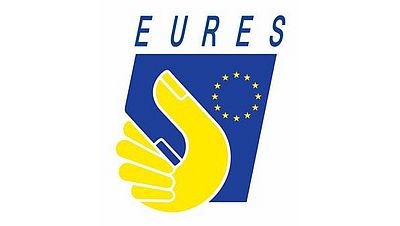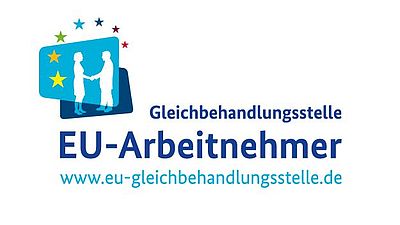
Information for EU citizens
If you are a citizen of an EU Member State, you can enter Germany without a visa, thanks to the freedom of movement. Find out here what you need to have to consider nonetheless.
Entry and residence: this applies to EU citizens
Are you a citizen of an EU member state planning to seek employment, study or complete vocational training in Germany? Thanks to the freedom of movement, you can travel to Germany without a visa or a residence permit and stay here for a period of three months. The only documents you will need for entering the country are either a valid passport or an ID card. There are no restrictions regarding access to employment and self-employment in Germany for you or your family.
The same applies if you are a citizen of Switzerland or the European Economic Area – i.e. Liechtenstein, Norway or Iceland.
Right to permanent residency
As an EU citizen, you automatically receive the right to permanent residence in another EU country after an uninterrupted legal residence of at least 5 years in that country. You can have this confirmed by requesting the issuance of a permanent residence card. This card can be useful when dealing with the authorities. Additional information on the subject of “permanent residence for EU nationals” can be found here (External link) .
German citizenship
Are you currently residing in Germany and would now like to apply for German citizenship? This is an option if you are an EU citizen. Information on which conditions you need to meet for naturalisation is available here.
Depending on what EU member state you are from, you may not need to relinquish your existing citizenship. This means that you will then have “dual citizenship”. Your local naturalisation authority can tell you which countries offer this option.
Access to the labour market and job search in Germany
The principle of freedom of movement for workers within the EU makes it easy for citizens from other member states to access Germany’s labour market. There is a broad range of support available for you to take up if you need it.
Help with finding a job
If you need help with seeking employment, EURES (External link) is the right service for you. The Federal Employment Agency (BA) is a member of EURES, the network of European Employment Services. EURES offers advice and job placement services for promoting labour mobility within Europe. The services range from pan-European job offers to EU funding programmes, information about living and working conditions abroad as well as contact details of EURES advisers. You will find simple explanations of which services EURES offers in this EURES flyer (External link) . On the European Job Days, you have the opportunity to directly obtain information on your job prospects and current job vacancies in Germany and other EU member states. For upcoming events, visit the European Job Days (External link) website.
Possibilities of support for EU citizens
EURES promotes fair and sustainable occupational mobility across borders. The Targeted Mobility Schemes (TMS) support programme is part of the EURES strategy. The programme aims to match suitable applicants with hard-to-fill job vacancies and to facilitate mobility, job hunting and recruitment within Europe. Several TMS projects are currently being implemented in Germany. Information on the various projects can be found on the EURES website (External link) .
Which requirements do I have to meet if I would like to participate in one of the German TMS projects?
- You are at least 18 years old and have not yet reached retirement age
- You have European citizenship and a residence in any of the 27 EU countries, Norway or Iceland and would like to work in Germany
- You are looking for a job, an internship or vocational training subject to social insurance and there are offers which match your qualifications as well as your desired field of training
- The job which you are applying for or in which you wish to start working is not limited to a period of less than six months, covers at least 50% of a full-time working week and complies with the legal and collective agreement regulations.
How do the German projects work?
At first, you should seek advice from a consultant. The advisers of the Federal Employment Agency (BA) will inform and support you in the following matters:
- Labour market and working conditions in Germany
- How to search for jobs, vocational training places or internships
- How to write a CV/résumé
- How to prepare for job interviews
The EURES consultation provided by the BA will help you in getting a better overview and is the basic and mandatory initial step before you submit your application. It will provide you with support tailored to your personal situation.
Possible support modules:
- Travel expenses: one-time financial support for travelling to a job interview.
- Relocation expenses: financial support related to you moving abroad, following a successful referral and before taking up employment.
- Recognition expenses: incurring costs within the scope of the recognition process of your qualifications (e.g. translation costs) can be covered.
- Language course in country of origin: under certain circumstances, you can receive financial support for a preparatory German course held in your country of origin.
- Language course in Germany: under certain circumstances, receiving financial support for a language course in Germany in parallel with your employment is an option
- Integration programme: your future employer may request that you take part in an integration programme to ensure your integration in Germany.
Right to equal treatment
If you work in Germany and feel that you are being discriminated against at work, we recommend contacting the EU Equal Treatment Office (External link) . Its duty is to ensure equal treatment of EU workers and dependent members of their household. If necessary, you can be provided with information in several languages about the right to freedom of movement for workers.
In the "Working in Germany" section you can find out more about finding vacancies, job applications, employment contracts, etc.
Recognition of foreign degrees and qualifications
Special rules also apply to EU citizens in regard to the recognition of non-academic vocational qualifications. The EU Recognition Directive (External link) states that most non-academic vocational qualifications will be recognised as an equivalent in the member states of the EU, thus giving professionals free access to the domestic labour market. The Directive applies to those citizens of the EU, the European Economic Area and Switzerland who have obtained their qualification in a member state, granting them access to the same occupation under the same conditions as German nationals.
You can find detailed information about the recognition of non-academic vocational qualifications for EU citizens in our "Recognition" section and on the Recognition in Germany (External link) website.
Requirements and funding for academic studies in Germany
If you would like to study in Germany, you can also benefit from freedom of movement within the EU. You can apply for admission to a German higher education institution with your certificate entitling you to tertiary education. School-leaving certificates obtained in the EU, Iceland, Liechtenstein, Norway or Switzerland are generally recognised in Germany. The DAAD database on admission requirements (External link) enables you to check whether your school-leaving certificate meets the requirements for studying in Germany.
Funding programmes – Erasmus+
In addition, there are numerous funding programmes available to you as an EU citizen. The Erasmus+ programme is one example. It provides grants for periods of studying abroad (studies and internships) for three (when studying) or two (when doing an internship) to twelve months in each study phase (Bachelor’s, Master’s, PhD). You can find more information on Erasmus+ on the websites of the European Commission (External link) and Study in Germany (External link) .
For more information on studying in Germany, visit our "Studies in Germany" section.
Support in finding a vocational training position
Are you looking for vocational training in Germany? Here too, the EURES portal can help you find a job. Vacant training places are published on the EURES website (External link) , or you can directly contact a EURES advisor. You can also consult the “Make it in Germany” job listings and specifically look for vacant vocational training positions.
For more information on vocational training in Germany, visit our "Training in Germany" section.
First steps in Germany: registration, learning German and social security
Once you have arrived, you may want to learn more about everyday life and procedures in Germany. The website of the EU Equal Treatment Office (External link) provides plenty of useful information tailored to nationals of other EU member states living in Germany.
We have listed a selection of the available services here:
Integration courses
As an EU citizen, you are allowed to participate in an integration course, but you are not obligated to. You can find out more about integration courses here.
Registration requirement
People living in Germany are required to register with the authorities. This applies to everyone living in Germany, irrespective of where they come from. As soon as you have moved into a house or apartment, you must register at the Resident's Registration Office of the municipality in which you are living.
You can find out more about living and working in Germany here.
Social security
As a citizen of the EU, the European Economic Area (EEA) or Switzerland, you will not lose entitlements earned in Germany from social insurance, e.g. statutory pension insurance. Once you reach retirement age, any EU or EEA member state you have worked in will pay out a pension in line with the specific rules of that country. This means that if you have worked in two different countries, you will be entitled to receive pension payments from both countries.
If you have worked in Germany until recently and are now unemployed, you are not left to fend for yourself but are entitled to unemployment benefits. The same conditions apply to you as to German nationals. Periods of employment and insurance which you have accrued in other countries will be taken into account when your application is processed.
There are numerous other welfare benefits which you are entitled to as an EU citizen in Germany. You can find further information on this subject at the EU Equal Treatment Office (External link) .
Do you have any questions?
Let us advise you on your opportunities to work and live in Germany. Our experts will support you with questions regarding job search, visa, recognition and learning German.
You can find out more about the various contact options by clicking on one of the icons in the bar below.



